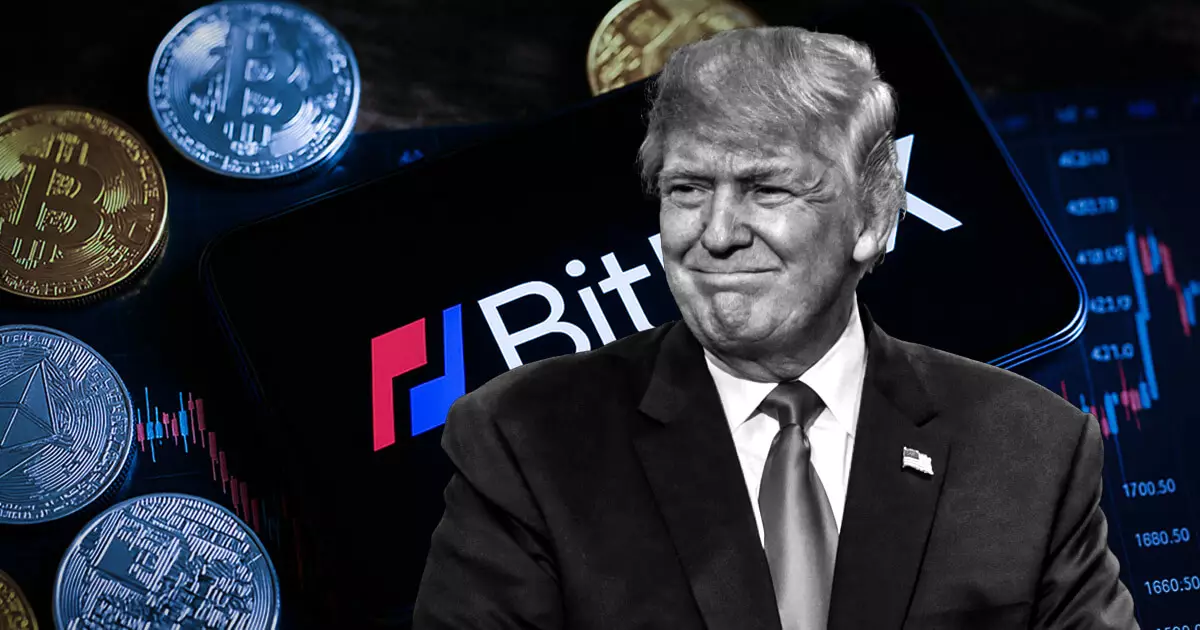When it comes to the world of cryptocurrency, few names resonate as powerfully as BitMEX. Founded in 2014 by Arthur Hayes, Benjamin Delo, and Samuel Reed, the exchange quickly grew into a juggernaut within the digital trading landscape. However, beneath its rampant success lay a host of legal troubles that have since come to symbolize the precarious relationship between innovation and regulation. Notably, the pardons issued by President Donald Trump on March 27 to the trio—who had previously pleaded guilty to violations of the Bank Secrecy Act—have ignited a firestorm of debate. Advocates argue that these pardons serve as a necessary correction to what they perceive as a heavy-handed regulatory approach, while opponents see them as a dangerous precedent.
A Pillar of Financial Disruption
BitMEX distinguished itself not through traditional trading methods but via high-leverage trading products that offered users the potential for immense profits—or catastrophic losses. This innovative approach, however, came with its challenges. While BitMEX was hailed as a disruptor, it also attracted scrutiny for its lax KYC (Know Your Customer) processes that allowed users to trade with minimal identification. Federal authorities argued that this negligence essentially turned the platform into a haven for illicit financial activity. By not enforcing a comprehensive compliance framework, the company knowingly courted American traders, thereby defying U.S. regulations.
The notion that these founders deserved to be held accountable for their actions is, in my opinion, a valid one. They operated in a grey area of the law for too long, and the fallout was inevitable. Ignoring compliance requirements not only undermines the integrity of the financial system but also puts consumers at risk. What message does this send to legitimate operators who strive to adhere to regulations?
The Politics of Criminality: A Misguided Narrative
In his remarks following the pardons, Benjamin Delo described the charges against him and his co-founders as a product of outdated laws and politicized enforcement efforts. While I appreciate a good underdog story, this narrative feels disingenuous. Laws are in place for a reason, especially in industries like crypto that are rife with speculation and volatility. To deem the regulations obsolete just because they do not align with one’s business model smacks of entitlement.
One must ask whether these pardons send a mixed message about accountability in the cryptocurrency sector. When prominent figures circumvent the consequences of their actions, especially after having explicitly broken the law, it creates an environment where cutting corners might be perceived as an acceptable risk. Instead of reinforcing the rule of law, it reinforces a narrative among budding entrepreneurs that they can get away with morally dubious decisions as long as they have powerful connections.
The Broader Implications for Crypto Regulation
The pardons were not just symbolic gestures; they came at a time when cryptocurrency is struggling to find its footing in a highly regulated world. With scams and economic collapses plaguing the industry, the need for a robust compliance framework should never be overstated. The Department of Justice and the Commodity Futures Trading Commission set a precedent by pursuing criminal penalties against crypto exchange operators. This evolving legal landscape will surely continue to impact how future platforms will strategize and operate.
By softening the consequences for those who blatantly ignored regulations, the implication is that existing and future platforms may choose to gamble with compliance measures, thereby jeopardizing the safety of their users. The cryptocurrency landscape is still immature and, like any budding technology, needs the scaffolding of regulations to foster sustainable growth. It is imperative that we do not romanticize figures like Hayes, Delo, and Reed as victims of a bureaucratic system gone awry; rather, we should hold them accountable for sowing seeds of mistrust within an industry that desperately needs legitimacy.
Embracing a Center-Right Perspective on Innovation
From a center-right liberal viewpoint, the ideal approach to cryptocurrency regulation lies in fostering innovation while simultaneously adhering to the rule of law. The Trump pardons blur this line significantly. They offer a dangerous precedent: that audacity and connections can lead to freedom—even when laws are broken. The heart of a healthy economy beats stronger with accountability, structured frameworks, and clear regulations, rather than backdoor dealings and leniency for bad actors.
Indeed, the world of digital finance thrives on innovation, but that does not mean we should ignore compliance or ethical conduct. The pardons may give a sense of vindication to some, but how much farther can we push the envelope before the legal framework snaps back violently? In the quest for innovation, there is no substitute for responsibility.

